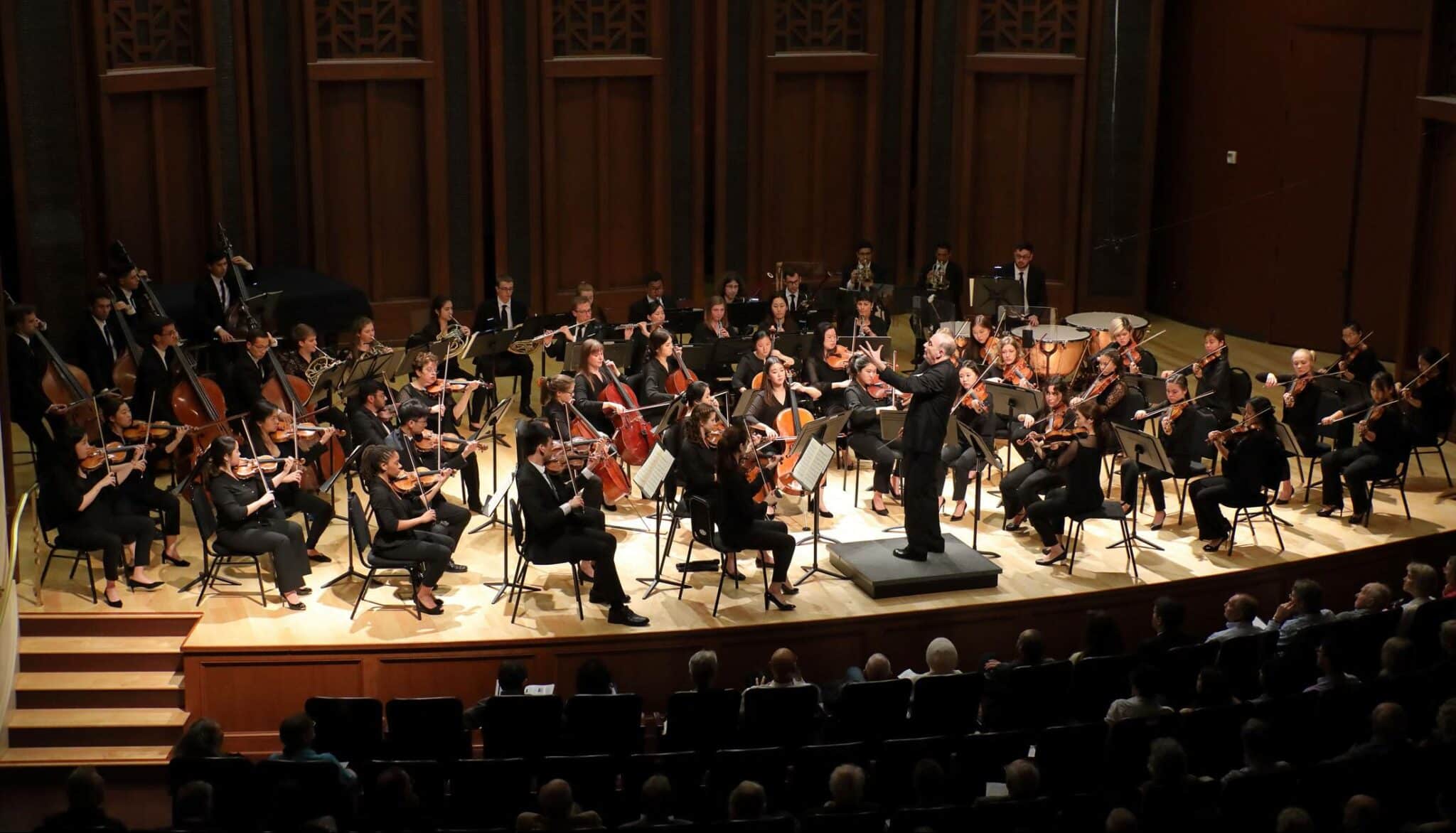“The Music Academy of the West makes a unique and enduring contribution to the world of music by advancing the development of the next generation of great classically trained musicians and cultivating discerning, appreciative, and adventurous audiences.”
Our audience is likely already familiar with the words of the Music Academy’s mission statement. But have you ever stopped to consider that you are a major component of this mission? The guiding principles of the Academy make it clear that the cultivation of its audience is as central as the training of the young musicians who attend the Festival each summer. We hope to enrich and enlighten our audiences through exposure to music both new old, familiar and unfamiliar. In the process we hope, as the mission statement says, to cultivate a discerning, musically-informed audience; an appreciative audience that recognizes the artistic worth and merit of varying works; and, my personal favorite, an adventurous audiences that is willing to be challenged and to try new things. This cultivation happens in droves during the annual Summer Festival. With events nearly every day of the week, there is no shortage of opportunities for audiences to experience a wide range of musical works (and Music Academy’s long history of featuring new works and living composers was the subject of last week’s blog post). But in a world where the internet and modern technology have given us virtually unlimited access to all kinds of music, this cultivation need not happen solely in the concert hall. It is in that spirit of discernment, appreciation, and adventurousness, that we welcome you to the first weekly playlist from the Music Academy! Each week we’ll post a new playlist featuring a variety of music for you to enjoy at home. With the long weekend coming up, there’s no better time to start things off with some great music. If you’re the type who enjoys using Spotify, you can find the link to the playlist here. Otherwise, there are videos for each piece embedded below. Without further ado, here’s the list. Happy listening!lumee’s dream (Nadia Sirota viola study) – Ellen Reid, arranged and performed by Nadia Sirota
First up is Nadia Sirota’s viola study of lumee’s dream from Ellen Reid’s Pulitzer Prize-winning opera p r i s m. Music Academy audiences may remember Reid from a performance of her work, “Floats the Roving Nebula,” during the 2018 Summer Festival. Nadia Sirota is a violist, curator, and broadcaster who served as both an Innovation Speaker and a Fast Pitch Awards judge during this year’s Music Academy Remote Learning Institute. There are even more Music Academy connections to be found in the video, which was directed by Vocal Institute Creative Director James Darrah and features alumna Anna Schubert (’20).Ricercar a 6 from The Musical Offering – J.S. Bach, arranged by Anton Webern
And speaking of arrangements, next up is a delightful example of transhistorical collaboration: the Ricercar a 6 from J.S. Bach’s The Musical Offering arranged by 20th century modernist composer Anton Webern (1883-1945). This 1935 reworking of Bach’s work is notable for its use of Klangfarbenmelodie (German for “sound-color melody), a technique wherein the melodic line is split between different instruments.“Harder Than Steel” – The Kruger Brothers and Kontras Quartet
And now for something completely different! This short song is one of several wonderful collaborations between the classically-trained Kontras Quartet and the North Carolina-based bluegrass and folk band Kruger Brothers. While this leans a little more toward the bluegrass side of the equation, other joint efforts between Kontras and the Kruger Brothers alter that balance (for those interested, Appalachian Concerto is one such example).Symphony No. 4, Op. 29, “The Inextinguishable” – Carl Nielsen
Danish composer Carl Nielsen (1865-1931) composed his Fourth Symphony between 1914 and 1916 during the heart of the First World War. In his program note for the work, Nielsen describes the piece as somehow representative of life (although he’s quick to point out that there’s no real “story” being told here). The work’s name, “The Inextinguishable,” comes from that program note:“Life is indomitable and inextinguishable; the struggle, the wrestling, the generation and the wasting away go on today as yesterday, tomorrow as today, and everything returns. Once more: music is life, and like it inextinguishable.”
– Henry Michaels
Resonance editor, Audience Services and Community Access Manager, Music Academy of the West


